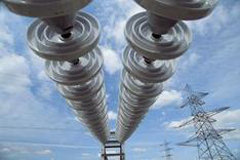Energy, EU – Baltic States, Legislation
International Internet Magazine. Baltic States news & analytics
Tuesday, 23.12.2025, 22:12
Countries around the Baltic Sea could be linked by huge power cables
 Print version
Print version |
|---|
The European Union Strategy for the Baltic Sea Region will be launched in June and will be a priority for Sweden, which will take the helm of the EU's rotating presidency from July, writes LETA/Reuters.
Among its many challenges are the heavy pollution of the Baltic by fertilisers and human waste, its isolation from European energy supplies and the huge disparity between rich countries like Sweden and Denmark and neighbours to the east.
"It is the first time we explore and develop a EU macro-regional strategy, and it can serve as an example for further developing regional strategies in other EU areas such as the Mediterranean and the Black Sea," said Swedish Environment Minister Andreas Carlgren.
At the heart of the Baltic's problems are its stagnant waters, often uninhabitable for fish due to the rampant growth of algae, nourished on detergents, poorly treated sewage and fertiliser run-off from farms.
"In Sweden, we have a tough homework ahead, especially agricultural run-off, which is a consequence of many decades of over-fertilization," said Carlgren. "If we agree on a pilot project for Baltic Sea I can see things happening much faster," he added. "For example, I see a great possibility in near future for banning phosphorus in detergents for the EU countries around the Baltic Sea."
Many of the projects will be covered by existing funding, such as a four billion euro plan agreed this month to bolster the EU's energy interconnections from 2010.
Sweden estimates the benefits from tackling nutrient pollution could reach 2 billion euros ($2.7 billion) a year due to improved fishing and tourism.
European Commission experts are in the early stages of developing a series of measures to tackle the problem.
The enforcement of organic farming buffer zones alongside rivers, the establishment of wetlands to soak up the nutrients, and an eventual ban on phosphates from detergents are among the proposals in a Commission draft report seen by Reuters.
The region's energy needs could be cut by promoting a ring of energy efficient "sustainable cities", which would be powered by burning plant biomass and linked offshore wind farms like Germany's Kriegers Flak.
Shipping terminals would be prioritised to bring liquefied natural gas from around the world to Poland, which is over 90% dependent on highly polluting coal.
And undersea power cables would end years of isolation for the energy markets of Latvia, Lithuania and Estonia, allowing them to buy electricity via a central Baltic power trading market.
To deal with the threat of increased storminess due to climate change, regional radar systems could be linked to create a powerful forecasting tool. This could be backed by a strategy for dealing with damaging storm surges.
European Commission experts are also considering a feasibility study to link national coast guards in the EU and other Baltic states as one overarching Baltic Sea Coast Guard.








 «The Baltic Course» Is Sold and Stays in Business!
«The Baltic Course» Is Sold and Stays in Business!

